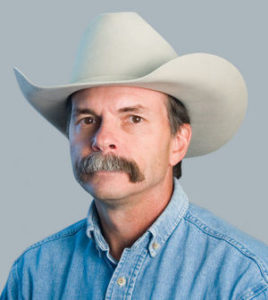Midwest Producer: Why mandatory COOL?
June 08, 2017 1:45 pm • By Bill Bullard Chief Executive Officer, R-CALF USA
Protecting competition is a legitimate role of government, particularly when many sellers have few buyers. This is true in our cattle industry. Four packers purchase 85 percent of the tens of millions of cattle raised each year by hundreds of thousands of disaggregated cattlemen. Those packers are also major importers. They lobby relentlessly for access to more foreign cattle and beef, including from countries with poor track records for diseases and food safety.

Bill Bullard is chief executive officer of Ranchers-Cattlemen Action Legal Fund, United Stockgrowers of America. He has testified before Congress and the Administration. His research on antitrust issues was published in the S.D. Law Review.
Thus, while cattlemen rely on four packers to pay competitive prices for 85 percent of their cattle, those same packers import large volumes of beef and cattle, which are direct substitutes for USA beef and cattle, to help them lower domestic cattle prices. It is not true that packers only import a lean grinding product to mix with our higher quality trim. Packers are increasingly importing high quality cattle and beef as well as tongues and offal.
Domestic cattle prices are ultra-sensitive to both domestic and imported supply increases. Indeed, analysts claimed the 3 percent increase in cattle inventories in 2015 was a major cause for the unprecedented $550-plus decline in cattle values. Studies show a 1 percent supply increase will cause a 2 percent price reduction.
Dominant packers know this and have unilateral power to decide from which country to source their cattle and beef. Because cattle prices are so sensitive to supply changes, the availability of undifferentiated imports is the beef packers’ holy grail for driving down their number one input cost — your cattle.
Cattlemen participating in branded programs also leave money on the table. This is because undifferentiated imports reduce the base price for domestic cattle, which minimizes the beneficial effect of added premiums.
This is classic market failure. Packers are interfering with the consumers’ ability to choose from which country they want their beef produced. This interference is caused by laws that 1) require both imported beef and cattle to be labeled and marked, respectively, when entering the U.S., but then allow packers to remove those labels and marks when they cut or repackage the imported beef or slaughter the imported animal, and 2) deceptively allows a “Product of the U.S.A.” label on any beef that receives any processing in a U.S. packing plant, regardless of where the beef originated or where the animal was born or raised.
Simply put, current law already informs the packers of the precise origins of all beef and cattle they import, procure, process and sell. But, the law inexplicitly allows packers to hide that origin information from actual consumers. Allowing packers to withhold known origin information from consumers is deceitful and gives packers tremendous control over the market.
Mandatory country of origin labeling (COOL) solves this market failure problem. It forces packers to share the origin information they already have with consumers, which empowers consumers to decide from which country they want their beef produced. Numerous surveys show most U.S. consumers want to know the origins of beef. A 2010 U.S. Department of Agriculture investigation concluded that packers cannot sell foreign-labeled beef for the same price as U.S.-labeled beef, and a 2014 Oklahoma State University survey concluded that consumers place a higher value on U.S. beef over foreign beef.
This is exactly what we expected and it explains why the packing lobby and foreign countries are so vehemently opposed to mandatory COOL. Also unsurprising is that our COOL law has been upheld by our U.S. court system on four occasions, definitively establishing that it complies with U.S. laws and our U.S. Constitution.
Importantly, COOL cannot be voluntary. The packers do not want it because it reduces their margins. And, cow/calf producers, backgrounders and feeders cannot force packers to apply labels on meat the cattlemen no longer own, particularly when those labels are so despised by the packers.